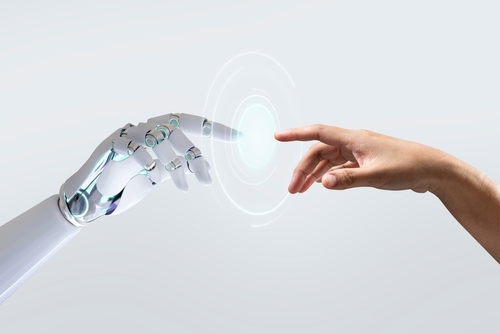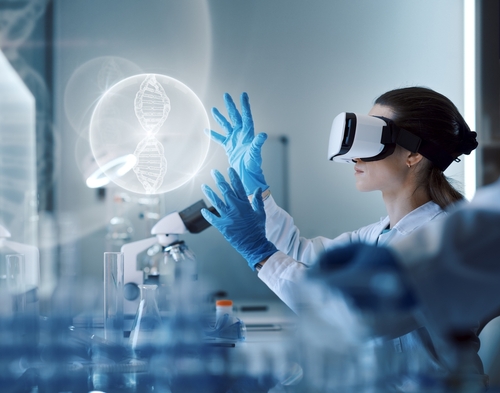
☝️ At a glance
- The integration of artificial Intelligence (AI) and other advanced technologies is revolutionizing medical education.
- AI tailors educational content to individual student needs, optimizing learning and support.
- VR and AR provide immersive, risk-free training in surgical procedures and anatomy.
- AI aids in diagnosing diseases and interpreting medical images, enhancing student skills.
- AI quickly analyzes data and facilitates collaboration, enhancing medical research capabilities.
In recent years, the integration of artificial Intelligence (AI) and other advanced technologies has revolutionized various sectors, including medical education. By harnessing the power of these innovations, medical educators can enhance the learning experience, improve outcomes, and streamline administrative processes. Here are five impactful ways medical educators can utilize AI and other technologies.

Become a global doctor with MBBS abroad!
Studying abroad can be affordable and stress-free with futureMBBS:
- World-recognized universities with English-taught programs
- On-site support in partner university cities
- Guaranteed placements & internships for hands-on experience
From selecting universities and supporting you with the application process to orientation and finding accommodation – we are at your side.
Personalized learning pathways
AI-powered platforms can analyze vast amounts of data to create personalized learning experiences for students. By assessing individual strengths, weaknesses, and learning styles, these systems can tailor educational content to meet each student's needs.
- Adaptive learning systems: These systems adjust the difficulty of tasks based on the learner's performance, ensuring optimal challenge and support.
- Intelligent tutoring systems: Provide real-time feedback and guidance, simulating one-on-one tutoring.
Virtual and augmented reality (VR/AR)

Virtual and augmented reality technologies are transforming medical training by providing immersive and interactive experiences that are not possible with traditional methods.
- Simulated surgical training: VR allows students to practice surgical procedures in a risk-free environment, honing their skills before performing on real patients.
- Anatomy learning: AR can overlay anatomical information on physical models or real-life subjects, providing a deeper understanding of human anatomy.
AI-driven diagnostic tools
AI algorithms assist in diagnosing diseases and interpreting medical images, giving students hands-on experience with advanced diagnostic tools.
- Radiology training: AI can help in interpreting X-rays, MRIs, and CT scans, allowing students to learn from AI-generated insights and improve their diagnostic skills.
- Pathology Education: AI analyzes pathology slides, highlights areas of concern, and provides explanations, thereby improving learning outcomes.

Study medicine abroad with 100% support!
futureMBBS offers full support to make your dream of studying medicine abroad a reality.
- Hassle-free admission guidance
- Fast-tracked visa processing
- Post-arrival support, including accommodation assistance
Administrative efficiency
AI and automation tools help streamline administrative tasks, allowing educators to focus more on teaching and less on paperwork.
- Student performance tracking: AI systems can monitor and analyze student performance, providing educators with detailed reports and insights to help them identify areas where students may need additional support.
- Automated scheduling and resource allocation: AI can optimize class schedules, lab usage, and other resources, ensuring efficient operation of educational programs.
Enhancing Research Capabilities
AI has the potential to significantly enhance the research capabilities of medical educators and students.
- Data analysis and interpretation: AI can analyze large datasets quickly and accurately, uncovering patterns and insights that might be missed by human researchers.
- Collaborative platforms: Online platforms powered by AI can facilitate collaboration among researchers, enabling them to share data, resources, and findings more effectively.
Conclusion
The integration of artificial technology and other advanced technologies in medical education offers a wealth of opportunities to enhance learning, improve diagnostic accuracy, streamline administrative processes, and boost research capabilities. By embracing these innovations, medical educators can better prepare their students for the rapidly evolving healthcare landscape.
Stay ahead of the curve in the evolving landscape of medical education! Embrace the future of healthcare learning with artificial intelligence. Join us on the journey of innovation, knowledge, and immersive experiences. Stay tuned with futureMBBS for the latest updates, insights, and breakthroughs in AI’s transformative role in shaping the next generation of healthcare professionals.
Your medical career abroad starts here!
Thinking of pursuing MBBS abroad? Don’t just dream it, do it!
Start your MBBS journey!




